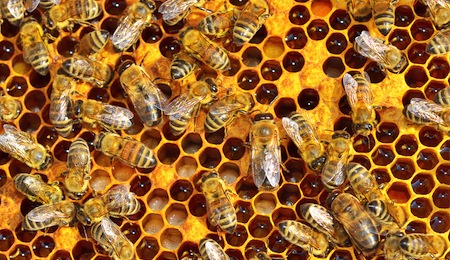 Bees don’t have many fans. They can be pesky when they’re trying to get a taste of your food, or annoying when they infest your garage with a nest. In addition, they can even be scary due to the chance that they could sting you. Even though you may not see the importance of these pesky insects, they are actually very beneficial for the ecosystem.
Bees don’t have many fans. They can be pesky when they’re trying to get a taste of your food, or annoying when they infest your garage with a nest. In addition, they can even be scary due to the chance that they could sting you. Even though you may not see the importance of these pesky insects, they are actually very beneficial for the ecosystem.
So, why are bees so important? Well, they do much more than just produce honey and beeswax. They are also used for medical uses. Their bee venom has been used for treating arthritis, multiple sclerosis, fibromyalgia, cancer, epilepsy and depression. They also are very essential when it comes to our ecosystem. These tiny workers pollinate around 80 percent of our flowering crops in the U.S., which constitutes about one-third of everything we eat. They are essential to the growth of many fruits and vegetables such as apples, cucumbers, broccoli, blueberries, asparagus and strawberries. Losing them could affect the growth of those nutritious foods, and the beef and dairy products that we eat. Consider them as little field workers and farmers. They pollinate approximately $14 billion worth of crops in the U.S.
So, are you now a bigger fan of bees than you were before? They are productive citizens of our planet and deserve to get more credit for all of their hard work. There are some things that we can do to help protect the bees:
- Diversify your garden or yard with many different plant species. These plants should bloom during different times of the year so that the bees can have pollination throughout the year.
- Plant an array of trees, plants and flowers that will provide the bees with both nectar and pollen.
- Plant trees and plants that are native to your state or area. The bees around you are the most familiar with these plants and they are better able to support a larger number of bees.
Make sure that our insect friends are getting as much nutrition as they need. The plants and trees that you plant can affect the bees. When deciding what to do with your landscaping, just ask us and we can better advise you about how to save the bees!




